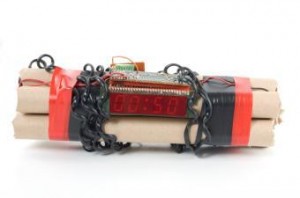 The market for federally insured home purchase mortgages grew riskier in December, garnering worry from analysts concerned about the government's recent efforts to expand mortgage access.
The market for federally insured home purchase mortgages grew riskier in December, garnering worry from analysts concerned about the government's recent efforts to expand mortgage access.
In its latest National Mortgage Risk Index (NMRI), the American Enterprise Institute's (AEI) International Center on Housing Risk estimated that 11.84 percent of agency purchase loans would be at risk of default should the economy see another crisis in the near future.
December's index, which saw about 215,000 new loans added to the pool of risk-rated mortgages, was up 0.4 percentage points from the average for the prior three months and 1.1 percentage points from a year earlier, AEI said.
As ever, the largest portion of risk came from the Federal Housing Administration (FHA), which had a risk index of 24.33 percent, up 0.2 percentage points from the prior three-month average.
Following that were the Veterans Affairs index, which was at 11.5 percent, and the Fannie/Freddie index, which was 6.2 percent, just above the 6 percent threshold AEI says is "indicative of conditions conducive to a stable market."
The biggest ongoing problem, the group says, is the number of loans with high debt-to-income (DTI) ratios being approved. While last year's qualified mortgage (QM) regulation restricted safe harbor status for mortgages with DTIs above 43 percent, loans qualified for purchase by the GSEs or FHA are temporarily exempt.
As a result of that exemption, AEI estimates the share of loans with DTIs exceeding the QM cutoff was 23 percent over the past three months.
On top of that, both FHA and the Federal Housing Finance Agency (FHFA) have taken steps in the past few months to lower the financial bar for mortgage access in order to increase homeownership—a strategy AEI researchers worry will backfire.
"For 50+ years, housing policy relied on looser underwriting standards in an effort to lift homeownership and the economy," AEI said. "This effort has neither increased home ownership or reliably created wealth."
They also voiced their concerns that by taking separate steps to attract homebuyers, the government is engaging in a price war with itself.
"Mortgage price wars between government agencies are particularly dangerous, since access to low-cost capital and minimal capital requirements gives those agencies the ability to continue the war for many years—all at great risk to the taxpayers," they said.

 theMReport.com Your trusted source for mortgage banking news
theMReport.com Your trusted source for mortgage banking news








